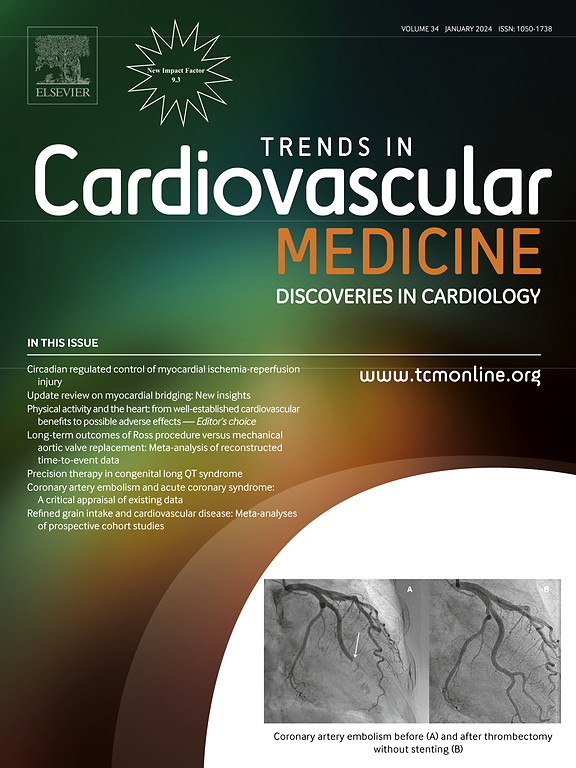Impact of medical versus surgical weight loss on cardiovascular outcomes
IF 9
2区 医学
Q1 CARDIAC & CARDIOVASCULAR SYSTEMS
引用次数: 0
Abstract
Obesity contributes to cardiovascular disease in two ways - directly, as an independent risk factor, and indirectly, through its contribution to comorbidities such as hypertension, diabetes, dyslipidemia. This cascade of multiplicative effects means that early management of obesity is instrumental in risk reduction and prevention of adverse cardiovascular outcomes. The amount and sustainability of weight loss has been extensively studied and stratified by medical versus surgical weight loss. Medical weight loss has historically been inferior by both parameters; however, new therapies targeting glucagon-like peptide-1 (GLP-1) and glucose-dependent insulinotropic peptide (GIP) receptors have demonstrated very promising results independently for both weight loss and cardiovascular disease. In this review, we compare cardiovascular outcomes between bariatric surgical approaches and novel GLP-1/GIP medications. We aim to answer the following question: In this era of new pharmacological weight loss options, does the method of weight loss—surgical or medical—impact cardiovascular risk mitigation, or is the key factor the maintenance of a healthier weight, regardless of the method?
内科与外科减肥对心血管结果的影响
肥胖以两种方式导致心血管疾病——直接地,作为一个独立的风险因素;间接地,通过它对高血压、糖尿病、血脂异常等合并症的贡献。这种级联的倍增效应意味着肥胖的早期管理有助于降低风险和预防心血管不良后果。体重减轻的数量和可持续性已经被广泛研究,并通过药物和手术减肥进行分层。从历史上看,医疗减肥在这两个方面都是劣势;然而,针对胰高血糖素样肽-1 (GLP-1)和葡萄糖依赖性胰岛素肽(GIP)受体的新疗法在减肥和心血管疾病方面都显示出非常有希望的结果。在这篇综述中,我们比较了减肥手术方法和新型GLP-1/GIP药物之间的心血管结局。我们的目标是回答以下问题:在这个新的药物减肥选择的时代,减肥的方法-手术或药物-影响心血管风险减轻,还是关键因素是维持一个健康的体重,不管用什么方法?
本文章由计算机程序翻译,如有差异,请以英文原文为准。
求助全文
约1分钟内获得全文
求助全文
来源期刊

Trends in Cardiovascular Medicine
医学-心血管系统
CiteScore
18.70
自引率
2.20%
发文量
143
审稿时长
21 days
期刊介绍:
Trends in Cardiovascular Medicine delivers comprehensive, state-of-the-art reviews of scientific advancements in cardiovascular medicine, penned and scrutinized by internationally renowned experts. The articles provide authoritative insights into various topics, encompassing basic mechanisms, diagnosis, treatment, and prognosis of heart and blood vessel disorders, catering to clinicians and basic scientists alike. The journal covers a wide spectrum of cardiology, offering profound insights into aspects ranging from arrhythmias to vasculopathies.
 求助内容:
求助内容: 应助结果提醒方式:
应助结果提醒方式:


